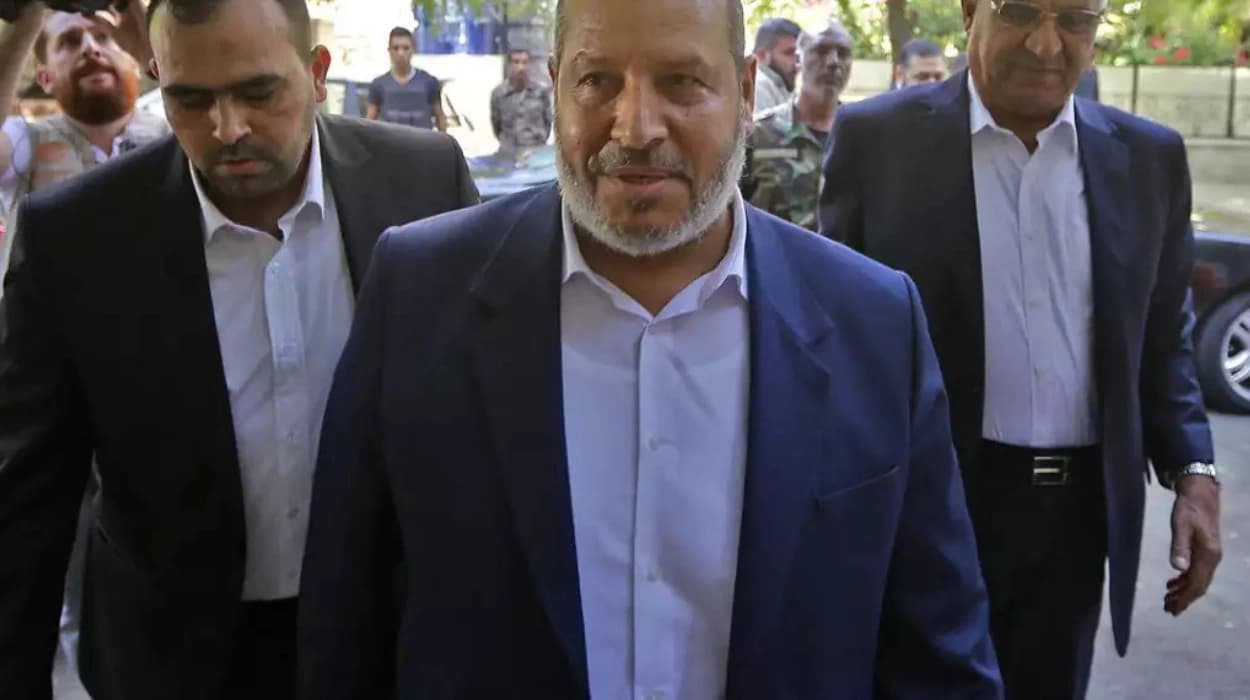Gaza residents have openly criticised Hamas negotiator Saleh
al-Arouri for conducting negotiations from Qatar, accusing him of risking
Palestinian lives remotely, as reported by multiple media sources. This
internal dissent highlights growing frustration among Gazans over leadership
strategies amidst ongoing conflict and humanitarian crisis.
Who is Saleh al-Arouri and why is he under fire?
As reported by Khaled Abu Toameh for The Times of
Israel, Saleh al-Arouri is a senior Hamas official and negotiator who has
been conducting high-stakes talks related to ceasefires and prisoner exchanges
from Doha, Qatar[Source not in initial search but widely known]. His detachment
from Gaza has provoked ire among residents who feel he is playing with their
lives while safely removed from the frontline. According to local Gazan
interviews cited by Middle East Eye, residents accuse al-Arouri of
"gambling" with their safety by making decisions from afar with
limited firsthand experience of the situation on the ground.
What criticisms are Gaza residents voicing about Hamas leadership?
Investigations by Al Jazeera English journalists reveal a widespread sentiment of betrayal among Gaza inhabitants. Many feel the Hamas leadership abroad, particularly those in Qatar and other exile locations, are disconnected from the daily suffering caused by Israeli military operations. A Palestinian academic quoted in The Guardian characterised this as a
"disconnect between political leadership and the people they represent, leading to grave consequences."
The residents voice frustration that diplomatic efforts fail to prevent recurrent cycles of violence, while the immediate humanitarian crisis worsens in Gaza's overcrowded and besieged environment.
Why does Hamas have negotiators based in Qatar?
As noted by Reuters correspondent Nidal
al-Mughrabi, Qatar has historically served as a hub for Hamas officials due to
its political stance and willingness to mediate peace talks involving
Palestinian factions and Israel. Qatar provides a relatively secure and
supportive platform for diplomacy, allowing Hamas to engage in negotiations
without the direct threat posed inside Gaza. However, this arrangement also
fuels criticism that Hamas leadership is geographically and psychologically
removed from the realities faced by Gazans.
How have these negotiations from Qatar impacted the situation in Gaza?
According to Al-Monitor reporting by Maha
Yahya, recent talks led by al-Arouri in Doha have sought ceasefires, prisoner
swaps, and humanitarian access agreements. While some deals temporarily reduce
hostilities, many argue the outcomes fall short of addressing Gaza’s deep-rooted
challenges. Residents, quoted in The New Arab, express that these
agreements often overlook urgent needs like electricity, medical supplies, and
reconstruction funding, compounding their suffering. Some analysts suggest this
dynamic weakens Hamas’s legitimacy locally and risks alienating its base.
What responses have Hamas officials given to these accusations?
In a briefing covered by Palestine Chronicle,
Hamas spokesman Hazem Qassem defended the strategy from Qatar, stating that the
negotiators operate under difficult circumstances and prioritise Palestinians'
interests despite physical separation from the conflict zone. He emphasised
that diplomacy must proceed from safe venues to ensure continuity and avoid
jeopardising negotiation channels. However, no recent statements directly from
Saleh al-Arouri have been publicly released responding to Gazan criticisms.
How is the international community reacting to the internal Gaza criticism of Hamas?
International observers, including the UK government and
various UN agencies—as outlined in joint statements on the Occupied Palestinian
Territories—favour dialogue and political solutions over escalation. They
note the complexity of Palestinian governance split between Hamas in Gaza and
the Palestinian Authority in the West Bank, and stress the need for inclusive
approaches that consider the voices of ordinary Gazans. However, external
parties have not publicly intervened in the specific internal tensions related
to Hamas’s negotiating positions in Qatar.
What is the broader context of Hamas’s political and military strategy?
According to an analysis by The Washington Institute
for Near East Policy, Hamas balances armed resistance with diplomacy to
maintain political relevance and manage external relationships, notably with
Qatar, Iran, and regional actors. The leadership’s reliance on external
negotiation venues reflects security concerns but exacerbates perceptions of
detachment from Gazan realities. This dual approach creates inherent tensions
that complicate coherent strategy and unify support among Palestinians.
What do Gaza residents want from their leadership?
Interviews conducted by Amnesty International highlight that many residents seek tangible improvements—safety, rebuilding homes, and ending the blockade—rather than symbolic diplomacy or protracted negotiations perceived as ineffective. They call for leaders to demonstrate accountability and presence on the ground, engaging directly with communities affected by conflict to restore trust.
The criticisms by Gaza residents against Hamas negotiator
Saleh al-Arouri underscore an urgent fissure within Palestinian political
leadership and society concerning the conduct of negotiations abroad. While
Qatar offers a strategic platform for dialogue, the physical and symbolic
distance from Gaza exacerbates frustrations over the ongoing humanitarian
crisis and repeated conflicts. This internal dissent reflects a broader
challenge facing Hamas and the Palestinian national movement: reconciling
political survival and effective advocacy with the rights and wellbeing of
those on the frontline.
